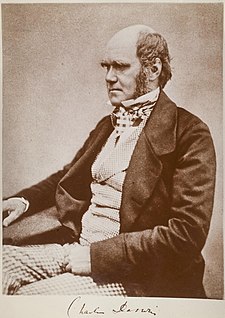|
|
Friday, February 13th, 2009
 Not only is today Friday the 13th -- also it is a special day for the Unix clock. This evening at 30 seconds past 6:31, it is 1,234,567,890 seconds since the Unix epoch. Not only is today Friday the 13th -- also it is a special day for the Unix clock. This evening at 30 seconds past 6:31, it is 1,234,567,890 seconds since the Unix epoch.
posted morning of February 13th, 2009: 1 response
|  |
Thursday, February 12th, 2009

 Australian blogger Wildly Parenthetical linked a few weeks ago to the Cockatoo Island Project -- photographer Patrick Boland's documentary of the old, rusting disused installations on Cockatoo Island in Sydney harbor ("Peter Panâ??s Never Never Land for a photographer who likes industrial and historical decay"). Magnificent! (As Maurice said to me, "May we all decay so colorfully!") Australian blogger Wildly Parenthetical linked a few weeks ago to the Cockatoo Island Project -- photographer Patrick Boland's documentary of the old, rusting disused installations on Cockatoo Island in Sydney harbor ("Peter Panâ??s Never Never Land for a photographer who likes industrial and historical decay"). Magnificent! (As Maurice said to me, "May we all decay so colorfully!")
posted evening of February 12th, 2009: 1 response
➳ More posts about Pretty Pictures
|  |
|
Interesting, so now I'm reading Elizabeth Costello and I'm seeing arguments about morality and animal rights everywhere I look. Today Saramago is writing about lobsters and geese: Putting a living lobster in boiling water and cooking it is an old culinary practice in the western world. It seems that if the lobster were dead in the bath, its final flavor would be different, for the worse. There are furthermore those who say that the rosy color with which the crustacean leaves the pot is due precisely to the high temperature of the water. I don't know it, I'm saying what I've been told, I am incapable of properly frying an egg. One day I saw in a documentary how to prepare chickens, how to kill and butcher them, and I was very close to throwing up. And the other day, if I am remembering right, I read a magazine article about the use of rabbits in the manufacture of cosmetics, and there I found out that the tests to prevent any possible irritation caused by the ingredients of shampoos involve applying them directly to the eyes of these animals, after the fashion of the dreadful Dr. Death, who injected petroleum into the hearts of his victims. Now, a brief notice appears in the periodicals informing me of how, in China, the birds' feathers which are destined to be stuffing for pillows are plucked out the same way, while living, after which they are cleaned, disinfected, and exported for the enjoyment of civilized societies which find it proper and fashionable. I will not comment, it is not worth the trouble, these feathers are enough.
posted evening of February 12th, 2009: Respond
➳ More posts about Saramago's Notebook
|  |
How will Amsterdam react to Elizabeth Costello in her present state? Does the sturdy Calvinist word evil still have any power among these sensible, pragmatic, well-adjusted citizens of the New Europe? Over half a century since the devil last swaggered brazenly through their streets, yet surely they cannot have forgotten.
Some notes on Chapter 6 of Elizabeth Costello:The novel Costello is reading at the beginning of the chapter is The Very Rich Hours of Count von Stauffenberg by Paul West. West wrote a review of Elizabeth Costello for Harper's, under the title "The Novelist and the Hangman"; however that review is not available online. Costello refers to Stalin as "Koba the Bear, [Hitler's] older brother and mentor" -- this seems ahistorical to me and reeks vaguely of Holocaust denialism. Stalin and Hitler were both brutal tyrants and genocidaires; but there was not a mentor relationship. It is very interesting to watch Costello, the novelist, reading and reacting to West's novel. I'm still wondering what the student who tried to make a scene at Costello's lecture in Chapter 1 wanted to talk about. Was she a vegetarian? A person morally opposed to vegetarianism? Perhaps a biology student upset about Costello's stand against animal research? The Holocaust-belittlement would not have been an issue at that point in time unless she had made the same remarks previously; but that seems unlikely.
posted evening of February 12th, 2009: Respond
➳ More posts about Elizabeth Costello
|  |
|

Abraham Lincoln and Charles Darwin were both born on Feb. 12, 1809. In different locations though, and I don't think their paths ever crossed. Still, intriguing.

 ...Come to think of it, now I'm thinking Dinosaur Comics made note of this a couple of years ago. Or some similar forum. Hm.

Update: and what do I find out now, but it is also Acephalous' birthday.
posted afternoon of February 12th, 2009: Respond
|  |
Wednesday, February 11th, 2009
I am a comic novelist, idiot-savant of the humanities; lecturing is outside my remit. Hendrik Hertzberg alerted me today to the publication of Zadie Smith's article "Speaking in Tongues" in the current NY Review of Books. It's adapted from a lecture she gave at the NYPL's "NYPL Live" series in December; you can download a recording of the lecture from the series page. Smith speaks very eloquently of Pygmalion and of Dreams from My Father, of Obama's "story of a genuinely many-voiced man".We'll see if Obama's lifelong vocal flexibility will enable him to say proudly with one voice "I love my country" while saying with another voice "It is a country, like other countries." I hope so. He seems just the man to demonstrate that between those two voices there exists no contradiction and no equivocation but rather a proper and decent human harmony.
posted evening of February 11th, 2009: Respond
➳ More posts about Zadie Smith
|  |
|
Saramago's blog entry today quotes one of my favorite passages from The Cave.
We say to the confused, Know thyself, as if knowing yourself was not the fifth and most difficult of human arithmetical operations, we say to the apathetic, Where there's a will, there's a way, as if the brute realities of the world did not amuse themselves each day by turning that phrase on its head, we say to the indecisive, Begin at the beginning, as if beginning were the clearly visible point of a loosely wound thread and all we had to do was to keep pulling until we reached the other end, and as if, between the former and the latter, we had held in our hands a smooth, continuous thread with no knots to untie, no snarls to untangle, a complete impossibility in the life of a skein, or indeed, if we may be permitted one more stock phrase, in the skein of life. I just love to read this sentence! It is the Alpha and the Omega of Saramago's beautiful voice.... Anyway I was meaning to post a translation of this entry of Saramago's, from a few days ago, because I found it touching:
Sigifredo López is the name of a Colombian lawmaker held captive for seven years by the FARC and who managed to recover his liberty thanks, among others, to the valor and persistence of senator Piedad Córdoba, principal director of the social and humanitarian movement, "Colombians for peace". Thanks to a set of circumstances which seemed impossible, Sigifredo López, who formed part of a group of eleven hostage lawmakers, of whom ten were not long ago assassinated by the terrorists, was able to escape the massacre. He is now free. In the press conference held in Cali after his escape, he believed he needed to express his gratitude to Piedad Córdoba in terms which would shake the world. Here we come to these words and these frightful images. I have never been able to brag of emotional fastness. I cry easily, and not because I am old. But this time I was obliged to break out in sobs when Sigifredo, to express his infinite gratitude to Piedad Córdoba, compared her to the doctor's wife in Blindness. Put yourself in my place, thousands of kilometers separate me from these images and these words, and poor me, melting away in tears, I had no other remedy but to take refuge in Pilar's shoulder and to let them run. My entire existence, as a person and as a writer, has been justified by this moment. Thank you, Sigifredo.
There is video of López' press conference at the link. The AP carried a brief story about his release. Democracy Now! has an interview (from last summer) with Piedad Córdoba, where she discusses negotiations with FARC.
posted evening of February 11th, 2009: Respond
➳ More posts about José Saramago
|  |
Tuesday, February 10th, 2009

Imagine the scene in Correggio's studio that day, Blanche. With his brush the man points: 'Lift it up, so. No, not with the hand, just with two fingers.' He crosses the floor, shows her. 'So.' And the woman obeys, doing with her body as he commands. Other men watching all the while from the shadows: apprentices, fellow painters, visitors.Who knows who she was, his model that day: a woman from the streets? the wife of a patron? The atmosphere in the studio electric, but with what? Erotic energy? The penises of all those men, their verges, tingling? Undoubtedly. Yet something else in the air too. Worship. ... The humanities teach us humanity. After the centuries-long Christian night, the humanities give us back our beauty. This passage at the end of Chapter 5, where Elizabeth is taking up her pen to write about the conflict between religion and beauty, is reminding me of the objection I had to Death with Interruptions, that it was too predictable; reminding me of that objection because this book is so much the opposite of that one. Elizabeth's action here is completely unexpected, surprising, startling; and yet it fits, it is exactly what needs to happen in the book at this point.There is a lot of painting in this chapter. Besides Correggio we saw reference to Hans Holbein and to Matthias Grünewald -- Blanche using them as examples of Reformation artists who painted the ugliness of crucified Christ.

posted evening of February 10th, 2009: Respond
➳ More posts about J.M. Coetzee
|  |
|
Nice: I am thinking about Sister Bridget's speech on humanistic and divine learning, and I happen on a new blog entry from Saramago:
Let us face facts. Years ago (many years already), the famous German theologian Hans Küng wrote this truth: "religions have never served to bring human beings closer to one another." Truer words have never been spoken. Here is not denied (and it would be absurd to think so) the right that everyone has, to adopt the religion most to his liking, from the most accustomed one to the least heard of, according to its precepts or dogmas (such as they may be), not even called into question the recourse to faith as supreme justification and, by definition (as we know all too well), the most definitive shutting off of reason. It is possible that faith moves mountains, there is no evidence that such a thing has ever occurred, but this proves nothing, given that God has never been disposed to engage his powers in this type of geological operation. What we know is that religions not only do not bring human beings closer, but rather they live, these religions, in a permanent state of mutual emnity, in all the falsely ecumenical harangues which this one or that one finds advantageous for passing, temporary tactical reasons. Things are this way, the world is the world, it is not an indication that anything is going to change. Except for the obvious idea that the planet would be much more peaceful if everybody were an atheist. Clear that, human nature being what it is, we would not be lacking in other motives for every dischord possible and imaginable, but we would be free of this ridiculous, infantile idea that our god is greater than the rest of the gods walking around, that the paradise which we hope for is a five-star hotel. And more, I believe that we could reinvent philosophy.
Anybody know which work of Küng's is being referenced here?
posted evening of February 10th, 2009: Respond
➳ More posts about Readings
|  |
|
 UCLA has created an online collection of mediæval manuscripts -- to me this means primarily "pretty pictures"; looks like it will also be a very useful resource for people whose field of research this is. UCLA has created an online collection of mediæval manuscripts -- to me this means primarily "pretty pictures"; looks like it will also be a very useful resource for people whose field of research this is.

 (Some further thoughts from a mediævalist: Mary Kate Hurley of In the Middle writes about the Digital Codex.)
posted evening of February 10th, 2009: Respond
| Previous posts
Archives  | |
|
Drop me a line! or, sign my Guestbook.
•
Check out Ellen's writing at Patch.com.
| |

